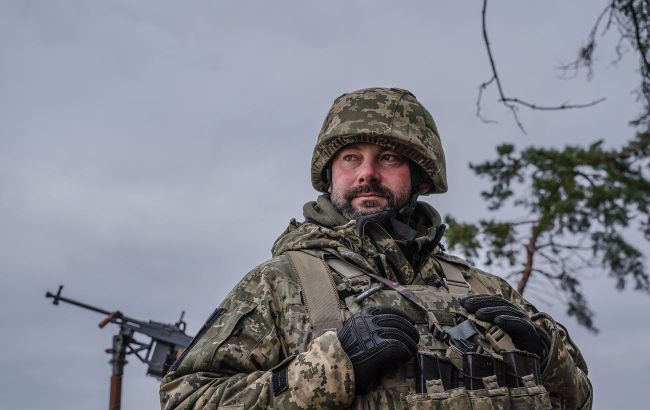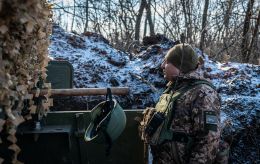Like Korean War - NYT predicts what ceasefire between Ukraine and Russia might look like
 A Ukrainian soldier (photo: Getty Images)
A Ukrainian soldier (photo: Getty Images)
The ceasefire agreement between Ukraine and Russia may stipulate that the Russian army will remain in the occupied territories. At the same time, the question of security guarantees for our country remains open, The New York Times reports.
According to the source, most officials around Biden and Trump, at least privately, recognize that Russia is likely to keep its troops on the 20% of Ukraine's territory it currently occupies. This could happen as part of an armistice similar to the one that halted but did not end the Korean War in 1953.
At the same time, the most difficult part of any agreement is the security agreement. It is about who can guarantee that Russian leader Vladimir Putin will not take advantage of the cessation of hostilities to rearm, recruit, and train new forces, learn from the mistakes of the last three years, and invade the country again.
In particular, Biden's national security adviser, Jake Sullivan, claims that Biden's team has spent the last year "creating an architecture" to ensure this security.
However, according to the NYT, Ukrainian President Volodymyr Zelenskyy suspects that this is just talk. Keep in mind that no one paid much attention to the 1994 security agreement that Ukraine signed with the United States, Britain, and Russia, among others. He says that only NATO membership will deter Putin from attacking again. Zelenskyy argues that joining the Alliance is not only in Ukraine's interest but also in Europe's interest.
"Russia is the enemy, and it can come to any country in Europe and occupy it," he said in recent days.
The NYT writes that the ceasefire could be enforced by a European peacekeeping force, most likely led by British, German, and French troops. According to two senior Biden officials, the key will be whether Trump wants the United States to maintain its central role of providing intelligence, weapons, and authorization for Ukraine to strike Russian territory in the immediate vicinity of the Ukrainian border.
Sullivan insists that it is extremely important for Trump to continue military support.
The Russians, for their part, want a much bigger deal, one in which the United States withdraws its weapons and troops from Europe. And on this issue, Trump remains silent.
In late December, the Financial Times predicted that Ukraine and Russia may conclude a peace agreement this year. However, for this to happen, the newly elected US President Donald Trump will have to increase support for Kyiv and pressure against Moscow.

